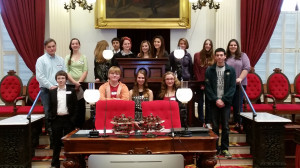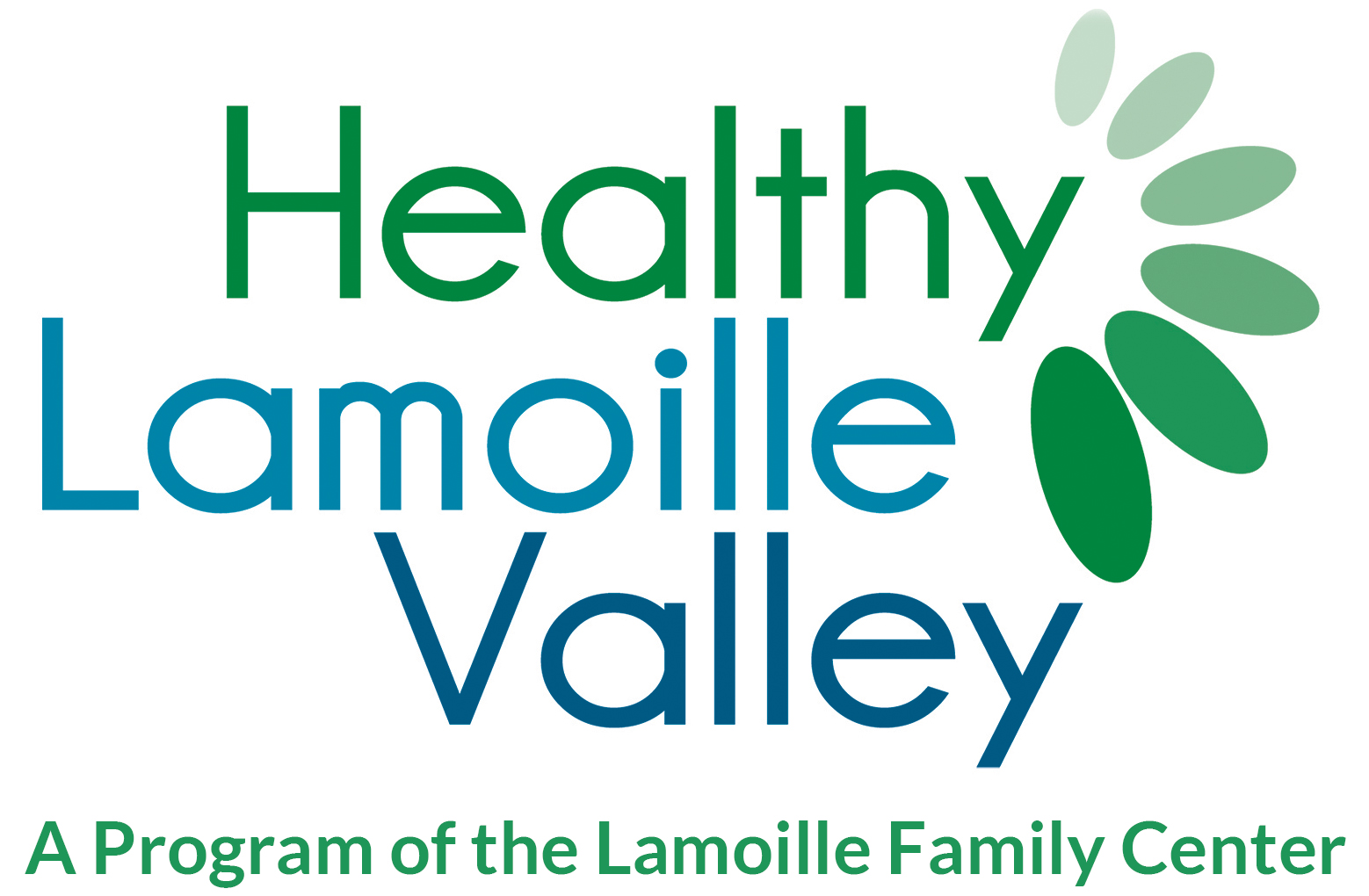Our August 6th post shared research suggesting that stronger community-level alcohol policies have a direct impact on reducing underage drinking. We shared a resource, Primer on Planning for Prevention that could help effect change at a local level.
This research set us to thinking about legislative involvement at the State level. How could the average Vermonter learn about the process and become involved? We emailed our questions to Speaker, Shap Smith’s office. Our questions were welcomed and met with a timely response!

People’s Academy and Windsor High Students Speak Out for Substance Abuse Prevention! Picture Courtesy: Peter Hathaway
Our quick takeaway: Vermont government is very approachable and your input on important issues matters! If there are things that concern you in our state you should talk to your local representatives.
Our questions and the responses given from Speaker Smith’s office:
1. Is there a resource that you’d recommend to help people, who are not currently engaged in State Government, to understand the process?
“Vermont’s legislature is remarkable in that it is more open and accessible than in many other states. The House of Representatives is an excellent example – many districts number 4,000 Vermonters for every Representative. Few states have such small, closely connected districts. House members are regular citizens whose community involvement and dedication elevated them to the State House. While we benefit from a small scale that is approachable and accessible, we still hear from some Vermonters who aren’t sure how to get involved in the process. A good starting point is to contact your Representative. Your Town Clerk can help connect you with your House Rep. You can also visit legislature.vermont.gov to learn all about the process. And, of course, we are always happy to have guests visit the State House. Come to Montpelier during the winter and Spring months to see how the process works.”
2. What are some of the influences on how legislators vote? AKA – Does it really matter if people engage?
“Representatives are elected by their neighbors. They spend a lot of time listening to constituents and responding to inquiries. It’s one of the most important parts of the job. If an issue is particularly spirited, constituent feedback goes a long way. Your voice really does shape the attitude of your legislator. It is not uncommon for Representatives to explain a vote by referencing the views expressed in their community. Folks who make their voices heard help direct Vermont. That’s an important role, and I encourage anyone who has never reached out to their legislator to take the opportunity if there’s an issue that spurs you to action.”
3. What are some of the issues that you think will be important in the next session?
“Last session we took on a lot of tough, structural challenges. We passed an education bill that will provide property tax relief to communities who chose to reign in their education spending. We passed a comprehensive water quality bill to clean up our polluted lakes and streams. We created a jobs package that will help more employers create skilled, good paying jobs, and will help us train Vermont workers to fill those positions. While I am proud of these important steps, I am committed to finding ways to make Vermont more affordable. Too many Vermonters are feeling the pinch as the country continues to lag from the Great Recession. I believe that the state can partner with businesses and workers to create the kind of jobs that spur innovation and healthy communities. That is going to be my primary objective as we work to create a 21st century Vermont.”
We thank Dylan Giambatista from Speaker Smith’s Office for forwarding these responses!
Additional Side Note: If you would like to see how your local legislators voted on recent issues visit the Ethan Allen Institute’s Roll Call http://ethanallen.org/vt-legislator-roll-call-profiles-2015-update/.

